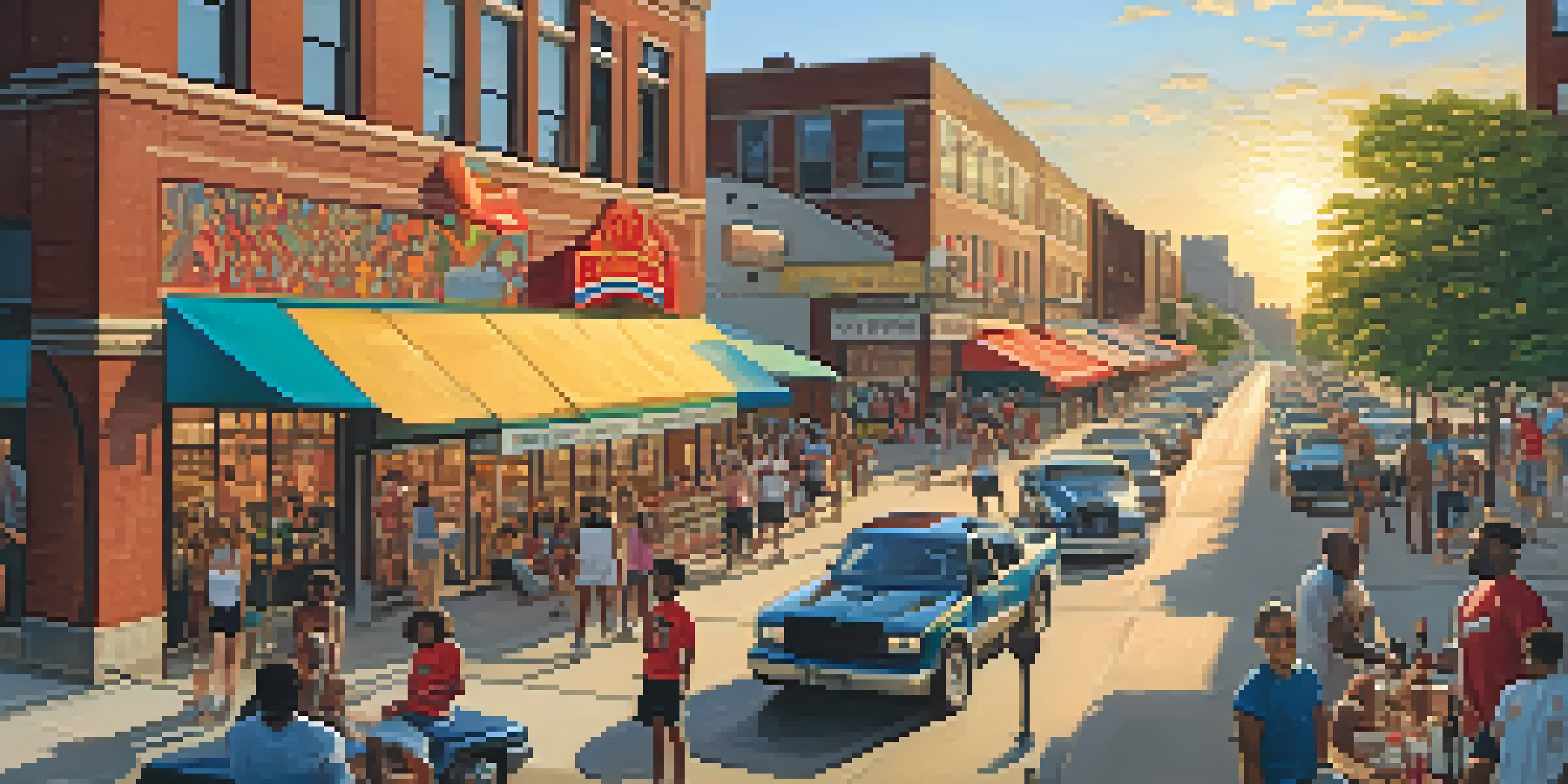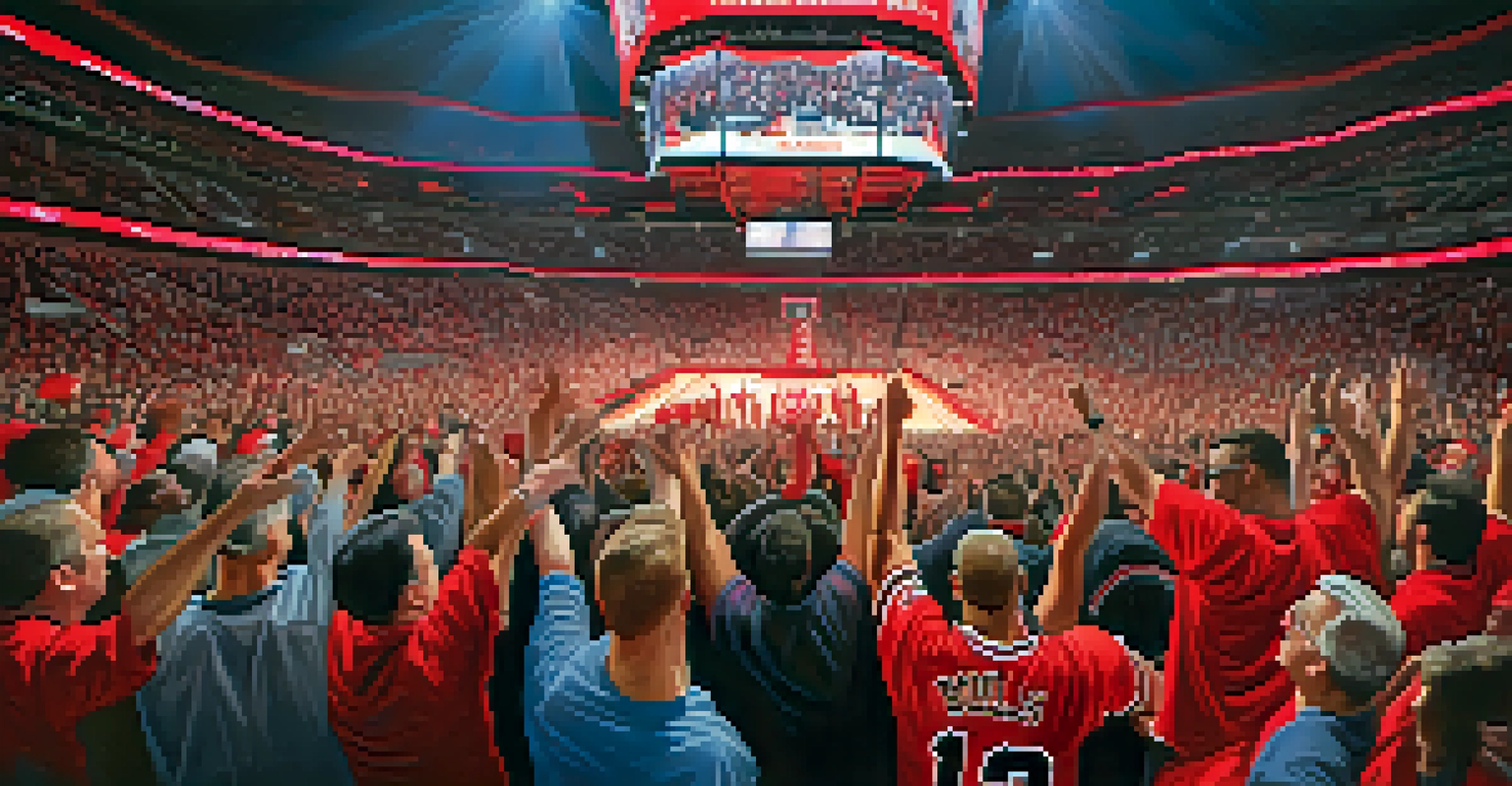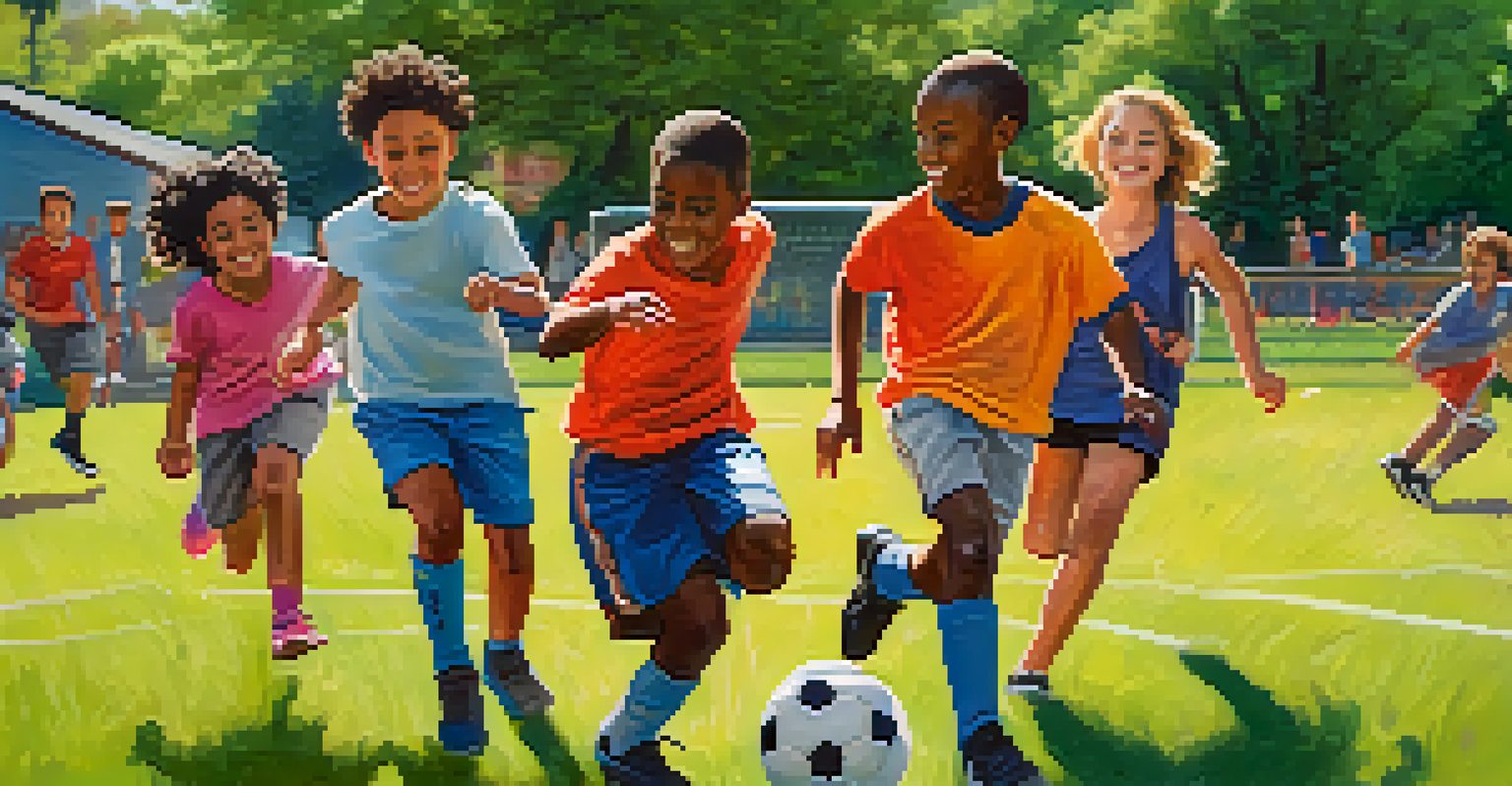The Role of Sports in Chicago's Urban Development and Unity

Sports as a Catalyst for Urban Development in Chicago
Sports have played a significant role in shaping Chicago's urban landscape. From the iconic Wrigley Field to the United Center, sports venues have not only provided entertainment but also spurred economic growth and revitalization in nearby neighborhoods. These arenas attract millions of visitors each year, creating jobs and boosting local businesses, which contributes to overall urban development.
Sports do not build character. They reveal it.
Moreover, the construction and renovation of sports facilities often lead to infrastructure improvements, such as better public transportation and enhanced public spaces. For instance, when the Chicago Bears announced plans to renovate Soldier Field, the project included upgrades to the surrounding area, making it more accessible and enjoyable for residents and visitors alike. This ripple effect showcases how sports can drive community investment.
In essence, sports serve as a cornerstone for urban development, providing both economic benefits and improving the quality of life for residents. By bringing people together in shared spaces, sports venues help create vibrant communities where culture and commerce can thrive.
The Unifying Power of Sports in a Diverse City
Chicago is known for its rich diversity, and sports have a unique ability to bring people together from all walks of life. Whether it's a Cubs game at Wrigley Field or a Bulls game at the United Center, fans unite in their passion for their teams, transcending cultural and socioeconomic barriers. This shared enthusiasm fosters a sense of belonging and community among Chicagoans.

Beyond the excitement of game day, local youth sports programs also play a crucial role in promoting unity. These programs often serve as a melting pot, where children from various backgrounds come together to learn teamwork, discipline, and respect. This early exposure to diversity can foster lifelong friendships and understanding, which are essential in a city as multifaceted as Chicago.
Sports Drive Urban Development
Sports venues in Chicago spur economic growth and infrastructure improvements, revitalizing nearby neighborhoods.
Ultimately, sports create a common ground for Chicagoans to celebrate their differences while uniting under a shared passion. This unity not only strengthens community ties but also contributes to a more cohesive urban identity.
Economic Impact of Major Sporting Events in Chicago
Major sporting events, such as the Chicago Marathon and the NHL Winter Classic, have a significant economic impact on the city. These events draw thousands of visitors, filling hotels, restaurants, and shops, which provides a substantial boost to the local economy. The influx of tourists not only benefits businesses but also generates tax revenue that can be reinvested into community services.
The greatness of a community is most accurately measured by the compassionate actions of its members.
Additionally, the media coverage of these events helps to promote Chicago as a vibrant and exciting destination. This exposure can lead to increased tourism beyond just sporting events, encouraging visitors to explore the city's rich cultural offerings. As a result, Chicago's reputation as a premier sports city enhances its overall economic profile.
In summary, the economic benefits of major sporting events extend far beyond the games themselves. They create a cycle of growth that supports local businesses, enhances the city's image, and contributes to urban development.
The Role of Sports in Youth Development and Education
Sports significantly impact youth development in Chicago by teaching valuable life skills. Through participation in organized sports, young people learn essential qualities such as teamwork, perseverance, and leadership. These skills are not only beneficial on the field but also translate into their academic and personal lives, helping them become well-rounded individuals.
Moreover, sports can serve as a vehicle for education, with many programs incorporating academic support alongside athletic training. For example, organizations like the Chicago Park District offer afterschool programs that combine sports with tutoring, ensuring that students excel both academically and athletically. This holistic approach helps bridge the gap between education and sports.
Unity Through Shared Sports
Chicago's diverse communities come together through sports, fostering a sense of belonging and collaboration.
In essence, sports provide Chicago's youth with opportunities for personal growth and development. By encouraging healthy lifestyles and academic success, sports programs play a vital role in shaping the future of the city’s younger generation.
Civic Pride and Identity Through Chicago Sports Teams
Chicago's sports teams, from the Bulls to the Bears, play a crucial role in fostering civic pride and identity. The passionate support for these teams creates a sense of belonging among residents, who often identify themselves through their local teams. This connection is particularly evident during championship seasons, when the city comes together in celebration, showcasing a collective spirit.
Moreover, sports teams often engage in community outreach, further solidifying their ties to the city. Initiatives such as charity events, youth camps, and partnerships with local organizations demonstrate a commitment to giving back and supporting the community. These efforts not only enhance the teams' image but also reinforce the bond between the teams and their fans.
In conclusion, Chicago's sports teams are more than just athletic organizations; they are vital components of the city's identity. Through shared experiences and community involvement, these teams help cultivate a deep sense of pride and connection among Chicagoans.
Revitalization of Neighborhoods Through Sports Facilities
The development of sports facilities in Chicago has often led to the revitalization of surrounding neighborhoods. Areas once considered underdeveloped or neglected have transformed into vibrant hubs of activity thanks to the construction of stadiums and arenas. For example, the redevelopment of the area around the United Center has spurred new restaurants, shops, and entertainment options, breathing life into the community.
This revitalization often comes with increased property values and attracts new residents, contributing to a more dynamic urban landscape. As more people move into these neighborhoods, local businesses thrive, creating a positive feedback loop that benefits everyone. The ripple effect of sports facilities can lead to a sense of pride and ownership among residents, further enhancing community cohesion.
Economic Boost from Major Events
Major sporting events in Chicago significantly enhance the local economy by attracting tourists and generating tax revenue.
Thus, sports facilities are not merely venues for games; they are catalysts for neighborhood revitalization. By investing in these spaces, cities can create thriving communities that celebrate both sports and local culture.
The Future of Sports and Community Engagement in Chicago
Looking ahead, the future of sports in Chicago is poised to further enhance community engagement. With the rise of technology and social media, teams and organizations can connect with fans in unprecedented ways. This interaction fosters a sense of community that extends beyond the stadium, allowing supporters to engage in meaningful conversations and initiatives.
Moreover, the focus on inclusivity and accessibility in sports will likely continue to grow. Efforts to make sports more accessible to underrepresented communities can help ensure that everyone has the opportunity to participate, whether as players or fans. This inclusivity not only strengthens community bonds but also enriches the local sports culture.

In summary, the future of sports in Chicago holds immense potential for community engagement and inclusion. By harnessing technology and prioritizing accessibility, the city can ensure that sports continue to be a unifying force for all Chicagoans.